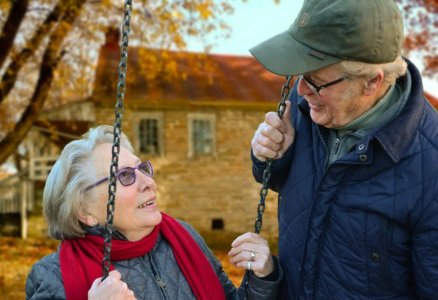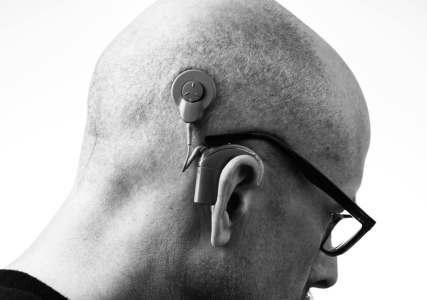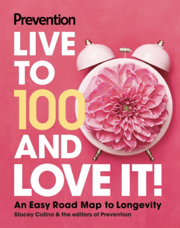9 simple habits that can help you feel younger, stronger, and more energized
By
Veronica E.
- Replies 0
Aging is part of life—but how we age is something we can influence more than we might think.
The choices we make each day, from how we move to how we connect with others, can shape not just how long we live, but how well we live.
Whether you’re in your 60s, 70s, or beyond, it’s never too late to take small steps toward better energy, sharper thinking, and a stronger sense of purpose.
Science continues to show that the best anti-aging strategies aren’t extreme—they’re simple, consistent, and within reach.
Here are nine research-backed ways to help you feel vibrant and stay engaged at every age.

Three basics make the biggest difference: don’t smoke, keep your weight in a healthy range, and prioritize quality sleep.
These habits have been shown to reduce the risk of heart disease, diabetes, and even certain cancers.
Aim for 7–8 hours of restful sleep per night—your body and brain rely on it for recovery and memory.
A relaxing bedtime routine, like reading or taking a warm bath, can make falling asleep easier.
You don’t have to run marathons to benefit from exercise.
Even moderate movement, like walking, swimming, or gardening, supports heart health, bone strength, and mental well-being.
The goal is 150 minutes a week, but even a few extra minutes of walking each day is a step in the right direction.
The secret is staying consistent!
Life brings challenges—resilience helps us bounce back.
Staying connected to loved ones, expressing gratitude, and seeking support when needed all strengthen our ability to cope.
Resilient people aren’t immune to stress—they just have the tools to move through it.
That’s something we can all learn and practice.
Loneliness can be as harmful to health as smoking or obesity.
Keeping in touch with friends, joining a group, volunteering, or chatting with a neighbor can all boost mood and protect brain health.
If you’re feeling isolated, consider online communities or local clubs.
Even small interactions make a difference.
Lifelong learning keeps your mind sharp.
Try a new hobby, learn a language, take a class, or work on a daily crossword.
Many colleges offer free or discounted courses for seniors.
The more you stretch your mind, the more resilient it becomes.
Hearing trouble can lead to social withdrawal, confusion, and faster cognitive decline.
If you’ve noticed changes—like difficulty following conversations or needing the TV volume higher—it’s worth getting tested.
Today’s hearing aids are small, effective, and can make a big difference in how connected you feel.

Chronic stress can wear down your immune system and raise your risk of illness.
Calming practices like meditation, nature walks, deep breathing, or simply turning off the news for a while can help you feel more centered.
Managing stress is a form of self-care, not a luxury.
Having a reason to get up in the morning is powerful.
Whether it’s caring for grandkids, volunteering, creating art, or sharing your knowledge with others, purpose gives your days meaning.
Studies show that people with a strong sense of purpose have better memory and are less likely to develop dementia.
A little sun is good for vitamin D and your mood—but too much can age your skin and increase cancer risk.
Wear sunscreen, stay in the shade during peak hours, and use hats or clothing for extra protection.
Being “sun smart” keeps your skin healthy and helps prevent long-term damage.
“There’s no one-size-fits-all trick,” says Dr. Patricia Harris of UCLA.
“It really takes a lot of things to live longer and healthier.”
That includes nourishing your body, tending to your mental health, and staying engaged in your community.
Read next:

Have you picked up a new routine, found a calming practice that works for you, or discovered a tip you’d recommend to others? Let’s share ideas and encouragement—your story might be just the nudge someone else needs!
The choices we make each day, from how we move to how we connect with others, can shape not just how long we live, but how well we live.
Whether you’re in your 60s, 70s, or beyond, it’s never too late to take small steps toward better energy, sharper thinking, and a stronger sense of purpose.
Science continues to show that the best anti-aging strategies aren’t extreme—they’re simple, consistent, and within reach.
Here are nine research-backed ways to help you feel vibrant and stay engaged at every age.

Healthy aging starts with small, consistent habits—like staying active, connected, and curious every day. Image Source: Pexels / Pixabay.
1. Focus on the fundamentals
Three basics make the biggest difference: don’t smoke, keep your weight in a healthy range, and prioritize quality sleep.
These habits have been shown to reduce the risk of heart disease, diabetes, and even certain cancers.
Aim for 7–8 hours of restful sleep per night—your body and brain rely on it for recovery and memory.
A relaxing bedtime routine, like reading or taking a warm bath, can make falling asleep easier.
2. Keep moving
You don’t have to run marathons to benefit from exercise.
Even moderate movement, like walking, swimming, or gardening, supports heart health, bone strength, and mental well-being.
The goal is 150 minutes a week, but even a few extra minutes of walking each day is a step in the right direction.
The secret is staying consistent!
Also read: Could this common vitamin help slow aging? Here’s what the research says
3. Build emotional resilience
Life brings challenges—resilience helps us bounce back.
Staying connected to loved ones, expressing gratitude, and seeking support when needed all strengthen our ability to cope.
Resilient people aren’t immune to stress—they just have the tools to move through it.
That’s something we can all learn and practice.
4. Stay socially connected
Loneliness can be as harmful to health as smoking or obesity.
Keeping in touch with friends, joining a group, volunteering, or chatting with a neighbor can all boost mood and protect brain health.
If you’re feeling isolated, consider online communities or local clubs.
Even small interactions make a difference.
Also read: Could taurine—the trendy amino acid in your energy drink—really slow down aging?
5. Challenge your brain
Lifelong learning keeps your mind sharp.
Try a new hobby, learn a language, take a class, or work on a daily crossword.
Many colleges offer free or discounted courses for seniors.
The more you stretch your mind, the more resilient it becomes.
6. Take hearing loss seriously
Hearing trouble can lead to social withdrawal, confusion, and faster cognitive decline.
If you’ve noticed changes—like difficulty following conversations or needing the TV volume higher—it’s worth getting tested.
Today’s hearing aids are small, effective, and can make a big difference in how connected you feel.

Addressing hearing loss early can improve communication, boost confidence, and help you stay socially connected. Image Source: Pexels / Brett Sayles.
Also read: Could this common pantry snack help slow aging? Scientists say yes—if you eat it whole
7. Reduce stress in daily life
Chronic stress can wear down your immune system and raise your risk of illness.
Calming practices like meditation, nature walks, deep breathing, or simply turning off the news for a while can help you feel more centered.
Managing stress is a form of self-care, not a luxury.
8. Find a sense of purpose
Having a reason to get up in the morning is powerful.
Whether it’s caring for grandkids, volunteering, creating art, or sharing your knowledge with others, purpose gives your days meaning.
Studies show that people with a strong sense of purpose have better memory and are less likely to develop dementia.
9. Protect your skin and your health
A little sun is good for vitamin D and your mood—but too much can age your skin and increase cancer risk.
Wear sunscreen, stay in the shade during peak hours, and use hats or clothing for extra protection.
Being “sun smart” keeps your skin healthy and helps prevent long-term damage.
Also read: Aging: The journey of mixed blessings and how to embrace each milestone
Aging well takes more than luck
“There’s no one-size-fits-all trick,” says Dr. Patricia Harris of UCLA.
“It really takes a lot of things to live longer and healthier.”
That includes nourishing your body, tending to your mental health, and staying engaged in your community.
Read next:
- The brain’s aging “hotspot” that could change the future for patients!
- The anti-aging secret you might be overlooking—and how to address it
- 5 daily habits for youthful aging, according to a gastroenterologist
Key Takeaways
- Healthy aging starts with simple habits like not smoking, maintaining a healthy weight, and getting good sleep.
- Staying active, socially connected, and mentally engaged can help prevent disease and boost quality of life.
- Hearing health, stress management, and sun safety all play important roles in aging well.
- Having a sense of purpose—through volunteering, hobbies, or family—supports both mental and physical well-being.
Have you picked up a new routine, found a calming practice that works for you, or discovered a tip you’d recommend to others? Let’s share ideas and encouragement—your story might be just the nudge someone else needs!






